There is capacitance.
Edit: In keeping with Dave Tweed's comments below, this edit applies to AC high voltage lines, which the one in the video is.
Each of the 3-phase lines have an AC potential with respect to ground. Because of the capacitance there will be a (reactive) current flowing between the lines (and anything connected to them) and earth. That current is one reason why DC lines are preferred for long distance transmission- the current causes losses in the resistance of the conductors. When the linesman bonds to the line, the current jumps through the air first, then it is tied directly to equalize the voltages. When the bond is broken, the helicopter may be left with a residual charge, as it would be with a DC line, as below.
/Edit.
The man-helicopter system is charged at about 0V with respect to ground. For the system to be charged to 500kV or whatever, that capacitance must be charged to the same potential as the high voltage line.
The IMAX photography is breathtaking, but the verbiage less so- voltage does not "flow around" the technician, and I'd like to see a reference to Michael Faraday speculating on the welfare of a man in a metal cage. His actual experiment involved a metal ice pail.

